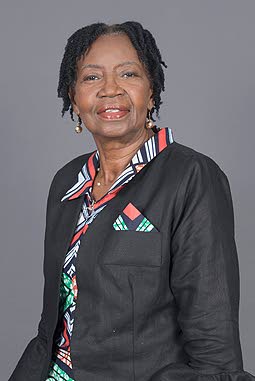Empowering Tobago: the Tobago District Teachers’ Association

Dr Rita Pemberton
After emancipation, the freed Africans of Tobago were very aware that plantation labour on the island would restrict their ability to achieve the type of freedom they desired.
As a result, they sought alternative employment in the skilled trades and sent their children to the schools established by the various religious denominations on the island, with the hope that education would provide new avenues for employment and social upliftment.
The demand for alternative employment opportunities coalesced with the desire for education which was reflected in their participation in the social and intellectual movements which emerged during the early years of the 20th century, which prompted the formation of the Tobago District Teachers’ Association in 1935.
This organisation was formed after the 1922 attempt to form a branch of the Trinidad and Tobago Teachers’ Union on the island fizzled into nothing after a decade of unproductivity. Mr Earnest Lyons was the first president of the new association, with Mr John Donaldson as secretary. The pioneering members included Nydia Bruce, George Daniel, Lawrence Edwards, Lionel Mitchell and Harold Telemaque.
The aim of the organisation was to contribute to the development of Tobago, which was visualised as being accomplished through strengthening the teaching fraternity and agriculture. The association provided training facilities and increased opportunities for teachers to improve their qualifications.
It also sought to provide improved public access to education facilities on the island. Among its initial projects were a library which provided services to communities around the island and skills training for those interested through short courses in music.
It was felt that the island’s handicraft should be given a boost, and to that end a programme was launch, which led to a handicraft exhibition mounted in April 1938. Such was its success that it became a fixture on the island’s social calendar and stimulated handicraft production.
Next, from 1937, primary-school singing competitions, which were keenly contested, were organised. Mitchell and LA Peters, who composed music, were heavily involved in strengthening the music culture on the island.
The TDTA tackled the burning issue of the need for education reform through a Teachers Week and organised the first all-teachers’ conference in 1937, which became known as Teachers Get Together. This was the first organisation of its kind in the country, and it was of significance because it brought together teachers at both primary and secondary level. These events provided teachers with the opportunities to air their problems and discuss matters of importance on the island. The organisation and the Teachers Get Together, which have become integrated into TTUTA, exist up to the present day.
The TDTA established pupil-teacher training centres, where senior teachers tutored upcoming pupil teachers, and offered classes for teachers preparing for the Cambridge examination, in Scarborough and Roxborough. Some teachers also gave continuation classes at their schools in Delaford and Scarborough.
John Donaldson spearheaded the establishment of a Tobago Teachers Benevolent Fund, which was managed by a board of teachers and inspector of schools. to provide for the widows and orphans of teachers.
The TDTA discussed the state of the island’s economy and identified two areas which required urgent attention. First was the need to halt the increasing migration of youth, and secondly, agricultural development needed more attention. It was suggested that both problems could be resolved by stimulating agricultural production through agricultural and industrial schools at which business skills would be taught. These measures would provide options on the island and serve as a mechanism to halt migration of youth and to keep much needed man power on the island.
Stimulated by the Veterinary officer who was posted on the island, the group called for attention to the need to arresting the decline in stock rearing on the island. In 1938 the Juvenile Farm clubs were started in the primary schools to provide training in breeding, care and marketing of livestock. Clubs were established in every school in Tobago and the practice was adopted in Trinidad.
The TDTA also sought to bring matters of education to public attention in order to develop public opinion on education matters. One such was the Education Code, which was the subject of a petition against its unacceptable provisions. The code precluded children under the age of five from attending school, and set the school-leaving age at 14-15, with no provision for either preschools or continuation schools. The TDTA presented the teachers’ mandate to the representative on the Legislative Council for needed reforms to provide a satisfactory system of education to benefit the public.
Teachers on the island also served in a number of other capacities: in the agricultural societies; agricultural credit societies; promoting public libraries; assisting sporting clubs, especially cricket and football; in the Girl Guides and Boy Scouts movements; and worked in peasant and labour organisations.
Teachers were involved in founding breakfast sheds in Tobago, the first of which was organised by the wives of the head teacher and inspector of schools at Mason Hall. The Scarborough Breakfast Shed was established in 1934.
Tobago teachers also played a role in the development of the PNM, when the People’s Education Movement (PEM) was launched in Tobago on March 16, 1950. The island was considered the ideal site for the launch and members of the TDTA were at the


Comments
"Empowering Tobago: the Tobago District Teachers’ Association"